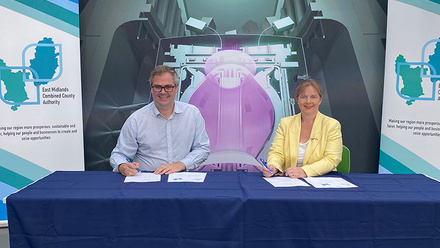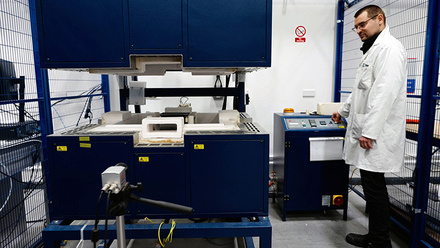Proposed new national electrification skills framework and forum revealed
A new skills framework will help develop new technologies and a skilled workforce, essential requirements to meet carbon net-zero.

The Government’s plan to ban sales of new diesel and petrol cars by 2030 has pushed the automotive sector, along with many others, to rapidly adopt, and develop, electrified products at a rate that will continue to increase for the next 10 to 15 years.
How transport and utility sectors can re-skill, up-skill and new-skill their workforce to meet skills demand at the point of need has been outlined in a report titled ‘The Opportunity for a National Electrification Skills Framework and Forum’.
Aimed at employers, training providers, accrediting organisations and learners the report discusses how industry engagement, along with educational collaboration rather than competition, will be key in putting the UK at the forefront of the electric revolution and securing future work opportunities.
The Framework, from Warwick Manufacturing Group (WMG) – University of Warwick, The Faraday Institution and the High Value Manufacturing Catapult, recommends the use of short and long courses, as well as continuing professional development, to deliver the competency sets to meet electrification goals across a range of sectors. The framework currently considers vehicle electrification as well as battery manufacture, power electronics, motors and drives, and learnings will next be extended to rail, aviation and utilities.
Through engagement with industry participants and educational providers, the report identifies the key principles and skills needed to make the UK a world leader in electrification. By re-skilling, up-skilling and providing routes through from education to enable new-skills, employees can progress in their career and companies can provide a viable way of managing and developing the skills of workforces in line with business objectives.
In order for the UK to successfully transition to an electrified and net-zero future, it is essential that all aspects of industry and education collaborate. The forum could provide an opportunity for not only different companies from multiple sectors to work together, but also for training providers across the UK to collaborate and crystallise the need for training, enabling the right courses to be offered at the point of need. Overall, the forum will help create skills development opportunities, and make the electric shift as smooth and sustainable as possible.
Professor David Greenwood, CEO of WMG High Value Manufacturing Catapult at the University of Warwick comments, ‘Electrification of automotive and aerospace industries, as well as the establishment of UK battery production facilities (gigafactories) represents a considerable industrial opportunity for the UK and one where having a workforce with the required skills and capabilities will be essential for the nation to compete successfully on the European stage.
‘As these sectors transform to fully electric products, we have a proposed national plan for electrification skills, through which we will define a framework to deliver a workforce with the required skills and capabilities to deliver the sectoral technology roadmaps. This focus will be essential for the sector to develop thrive in a highly competitive global industry.
‘We are proud to launch this forum, through which the electrification skills framework will be shaped by the wisdom and direction of automotive technologists, educators, accrediting bodies and training providers. It will provide a framework for a national skills programme, delivering at a regional level according to industrial need.’
Tony Harper, the Director of the Faraday Battery Challenge at UK Research and Innovation adds, ‘UK industry is undergoing an exciting and rapid transformation to fulfil the UK Government’s 2050 Net Zero commitments. This once-in-a-generation, global technological revolution leaves competency gaps at all job levels, particularly in engineering and manufacturing roles which will need to be filled with specific education and training.
‘Our report defines the training and investment in people, education and skills that will allow the UK to Build Back Better and secure greener jobs in a flourishing UK electrification sector.’







